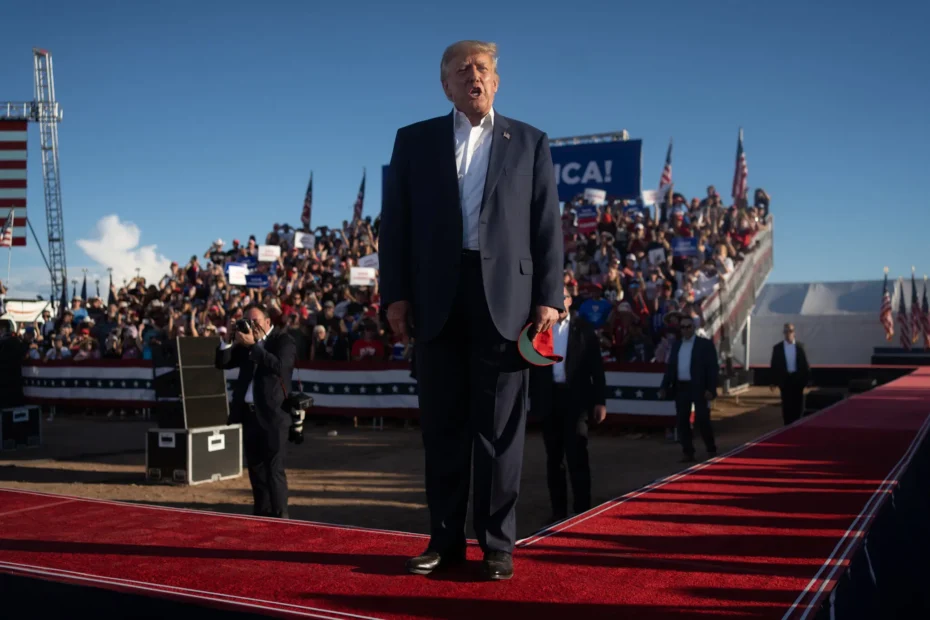In a latest development on the legal front, Special Prosecutor Jack Smith has urged the United States Supreme Court to swiftly address Donald Trump’s claim of absolute immunity from criminal prosecution. After being given a seven-day window by the Supreme Court to respond to Trump’s appeal, Smith wasted no time and filed a comprehensive 40-page response within a single day. The response highlights the urgency of the matter and emphasizes the need for the Supreme Court to uphold the rulings of lower courts denying immunity to former presidents.*
Echoes of History: Smith Draws Parallels to Nixon Case
Drawing parallels to the historic United States v. Nixon case, Special Prosecutor Jack Smith invoked the swift and decisive action taken by the Supreme Court in 1974. Smith reminded the Court of its crucial role in ending President Nixon’s tenure by ordering the release of incriminating audio tapes. The comparison serves to underscore the gravity of the current situation and the importance of expeditious legal proceedings.
Republican Senators’ Role in Nixon’s Downfall
Reflecting on the pivotal role played by Republican senators in the Nixon impeachment saga, Smith highlighted the significance of bipartisan accountability in the face of wrongdoing. Notably, Senator Barry Goldwater, a staunch conservative, conveyed his deep concern over Nixon’s obstruction of justice, signaling a bipartisan consensus against presidential misconduct. The episode stands as a testament to the principles of integrity and accountability transcending partisan divides.
Timeline of Expedited Proceedings: Lessons from the Past
Special Prosecutor Jack Smith outlined a timeline of expedited proceedings in the Nixon case, emphasizing the efficiency with which the Supreme Court can act when necessary. From the initial filing to the issuance of the opinion, the entire process took a mere two months, underscoring the Court’s ability to swiftly address matters of national importance. Smith’s reference to historical precedents underscores the need for timely resolution in the current legal dispute.
Supreme Court’s Duty: Upholding the Rule of Law
Amid mounting legal challenges, the Supreme Court faces a critical decision regarding Trump’s immunity claim. Special Prosecutor Jack Smith contends that there is no justification for the Court to entertain Trump’s appeal, given the unanimous rulings of lower courts. By upholding the rule of law and rejecting claims of absolute immunity, the Supreme Court can reaffirm its commitment to justice and accountability.
Path to Resolution: Setting a Clear Schedule
In his response to the Supreme Court, Special Prosecutor Jack Smith proposed a clear and expedited schedule for adjudicating Trump’s immunity claim. Emphasizing the need for prompt action, Smith outlined a timeline for filing briefs and conducting oral arguments, ensuring a swift resolution to the legal dispute. The proposed schedule reflects a commitment to efficiency and transparency in the judicial process.
Lessons from History: Resilience of Democratic Institutions
The current legal battle underscores the resilience of democratic institutions in upholding the rule of law. From the Watergate scandal to the present day, the United States has weathered political storms with steadfast adherence to constitutional principles. The ongoing proceedings serve as a reminder of the enduring strength of democratic norms and the importance of accountability in public office.
Hope for Justice: Navigating the Path Forward
As the legal drama unfolds, there is hope for justice and accountability in the face of adversity. With the Supreme Court poised to make a pivotal decision, the nation awaits a resolution that upholds the principles of transparency and accountability. The outcome of this legal battle will reverberate across the political landscape, shaping the future of presidential accountability and the rule of law in the United States.
